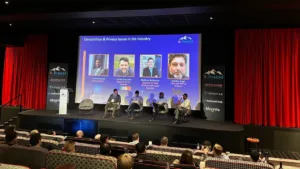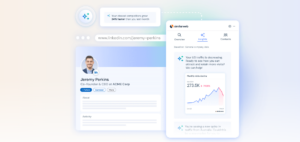By Paul Coggins, CEO, Adludio
Artificial intelligence (AI) has been big news since the emergence of ChatGPT at the end of last year, and has seen businesses of all sizes scrambling to find ways to make use of the technology. The world of digital advertising, on the other hand, is no stranger to AI, with the technology already having played a key part in the buying process for many years.
That being said, the mainstream emergence of AI is set to fundamentally change every other aspect of digital advertising – from production right through to insights.
2023 has been the year of waking up the industry to the potential that AI has to deliver the most effective advertising, and 2024 is set to be the year we start to see this powerful technology truly driving campaigns.
In my opinion, this could really come to the fore at next year’s Cannes Lions Festival of Creativity, where it would take a brave person to bet against AI powering a large chunk of Lions winners.
AI brings everything together
Advertising is constantly evolving, and this is just the latest evolution. In many ways, it mirrors the impact that the introduction of the iPhone had back in 2007. Mobile became more ubiquitous and ushered in a new era of advertising; AI’s growing interest will do the same. It’s a game changer.
There is no job in advertising that won’t be impacted by AI. It will change the production process. It will change the creative process. It will continue to change the buying process. It will change the reporting process. It will change every aspect, and drive forward advertising capabilities to a point that could only have previously been imagined.
Particularly as we witness the demise of third-party cookies, AI can help to tackle the growing need for marketers to provide real insights into the effectiveness of their campaigns. As such, it’s essential that marketers are finding ways to drive advertising effectiveness.
Creative has always been the driving force behind advertising effectiveness, but it has often been missing a connection with media and data. How do they interact? How are they interoperable? What factors within the creative drive better outcomes for the media, and vice versa? These are all questions that can be answered with the application of AI.
Being able to look at the components of an ad unit, and understand the relationship it has with an element of the creative and the outcome is something that not many marketers focus on, despite being extremely important.
AI can only be intelligent and powerful if the data behind it is up to scratch. The data has to be accurate, insightful, useful, and actionable.
Still a place for human input
The ability of AI technology to inform and optimise the entire creative process may mean the Cannes Lions festival taking a different shape in the coming years. There will be AI-led creatives entered into the awards, so a decision will have to be made on how best to judge work created by a human against work created by an algorithm.
Nonetheless, though AI should be informing creative right from the beginning of the advertising process, creative consultants will still be very important to overseeing the use of the technology. It would be unwise to allow generative AI to pump out creative without the nuances that can only currently be applied by a human.
Anybody can ask an AI platform to generate an image, but it means nothing without the data and intelligence behind it. AI technology still has a long way to go. It needs to advance, learn, and get better. And the only way to do that is with more quality data feeding it.
It’s still very early in the journey, and the AI revolution has only just begun. It’s a defining moment for the future of the world, and it has a particularly significant role to play in driving automation within digital advertising.
Adludio will be onboard the ‘JoyMe’ on Wednesday 21 June as it discusses the future of AI in marketing and toast the best of Cannes 2023.
*Adludio is a client of Bluestripe Communications, owned by Bluestripe Group, publisher of NDA









